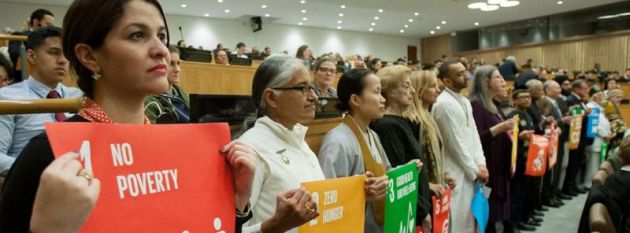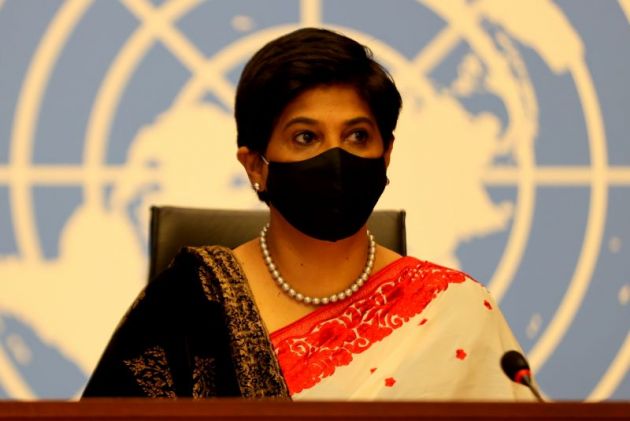Poland and Turkey offer their religious rights' insights at UN Human Rights Council

A national leader and a foreign minister from two countries -- Poland and Turkey -- one Christian and one Muslim, spoke out about religious freedom, persecution and hatred during the opening day of the 46th session of the United Nations Human Rights Council.
Poland's President Andrzej Dudas told the council in a video address on Feb. 22, "The fact that for more than a year now, most of the attention has been paid for to combating COVID-19 does not mean that other problems have magically disappeared."
Duda said that violation of fundamental rights should be addressed by the international community more efficiently as he and Turkey's foreign minister Mevlut Cavusoglu offered Christian and Muslim perspectives about persecution of religion which basically focus on the same rights.
"Poland has been particularly concerned by the increasing phenomenon of discrimination against and religious persecution of Christians and other religious minorities," said the president of the country which has a population of some 38 million people of whom around 86 percent are Roman Catholics.
The president explained that on Aug. 22 2019, on Poland's initiative, the UN General Assembly adopted a resolution titled International Day Commemorating the Victims of Acts of Violence Based on Religion or Belief.
That resolution "strongly deplored all acts of violence against persons on the basis of their religion or belief, as well as any such acts directed against their homes, businesses, properties, schools, cultural centers or places of worship."
It also censured "all attacks on and in religious places, sites and shrines that are in violation of international law."
"Poland also remains committed to protecting vulnerable groups, including children, older persons, and persons with disabilities.
"We must stand up for those who will not be able to stand up for themselves, we must strive for solidarity," said the president whose country has put a near-total ban on abortions, including the termination of pregnancies with fetal defects,.
The resolution the president referred to strongly deplored all acts of violence against people based on their religion or belief.
It also refers to such acts directed against their homes, businesses, properties, schools, cultural centers or places of worship, as well as all attacks on and in religious places, sites and shrines that are in violation of international law.
For his part, Turkey's Cavusoglu told the HRC, "Islamophobia, and hate speech are on the rise."
He said the COVID-19 pandemic has increase such trends, and noted that some publications foster "hate speech against Islam and Muslims," that "insult nearly 2 billion believers around the world."

"Yes, freedom of speech is key to any democracy. But this freedom doesn't give the right to insult the sacred values of others.
"Unless we promote a culture of living together, we risk damaging our common democratic values and social cohesion," he said in an apparent reference to a satirical magazine in France, which Turkey had said published a cartoon insulting the Prophet Mohammed.
He also said "Turkey closely follows the human rights situation in the Xinjiang Uighur autonomous region. The findings of the UN and other international reports are cause for concern," in a reference to the Muslim minority in China.
"We share our concerns and expectations on the matter with the Chinese authorities. We expect transparency on this issue while respecting China's sovereignty and territorial integrity."
At the opening of the HRC session UN Secretary-General Antonio Guterres spoke about "policies of assimilation that seek to wipe out the cultural and religious identity of minority communities.
"When a minority community's culture, language or faith are under attack, all of us are diminished. When authorities cast suspicion on entire groups under the guise of security, all of us are threatened," said Guterres.
